
Annual Valentine’s Cosmetics Drive
It’s time for our annual toiletries drive to support the Cambridge YWCA! Help support the drive by donating unused and unopened toiletries, cosmetics, and menstrual hygiene products.

It’s time for our annual toiletries drive to support the Cambridge YWCA! Help support the drive by donating unused and unopened toiletries, cosmetics, and menstrual hygiene products.
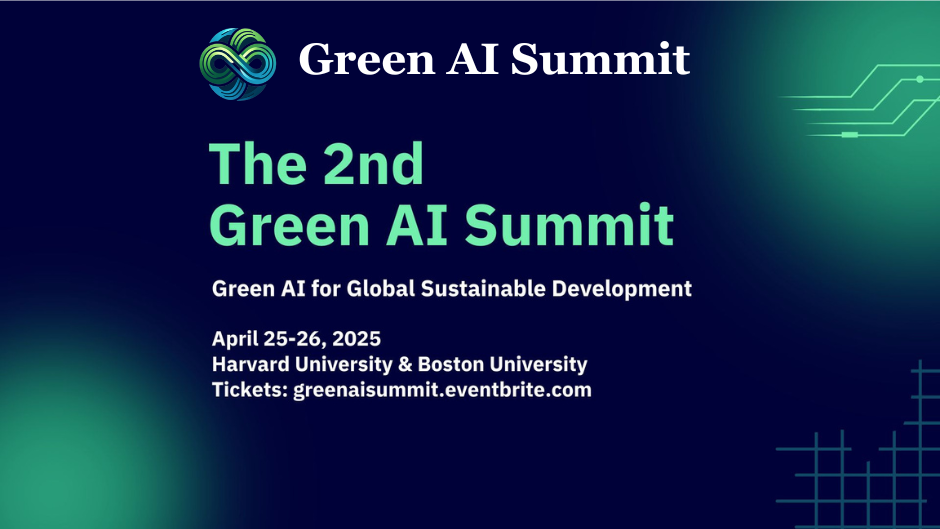
The Green AI Summit on April 25-26, 2025, hosted by Harvard Undergraduate AI and Sustainability Group, co-sponsored by Boston University Center for Information and Systems Engineering (CISE), brings together global leaders, researchers, and innovators to explore the intersection of artificial intelligence and sustainability. As AI technology continues to shape the world, the Green AI Summit serves as a critical platform to address the environmental and social impacts of these advancements and to champion responsible development practices.

Shake off the winter blues and let your inner scientist loose. This popular annual event offers the opportunity to interact with professional scientists and amateur collectors while trying your hand at simple science explorations. Meet Harvard scientists who study extinct animals, zombie flies, and black holes! Learn from the Boston Mineral Club and MassWildlife. Bring your rock, mineral, or fossil samples to discuss with local collectors. Create colorful shadows while exploring light. Design a button portraying your favorite part of the natural world. This event has something for everyone and is appropriate for children and adults of all ages.
Regular museum admission rates apply.
Free parking is available at the 52 Oxford Street Garage.

How can we reduce the impacts of the most toxic chemicals in today's supply chains?
Join us for a discussion panel on the role of information access in enhancing environmental initiatives to reduce pollution and chemical toxins. Panelists - including Harvard Kennedy School experts, industry leaders, and representatives from ChemFORWARD, the 2024 recipient of the Roy Award for Environmental Partnership - will explore the challenges that the private sector faces in addressing toxic pollution, the upsides and downsides of regulatory approaches, and lessons learned from a cross-sectoral approach to chemical hazard mitigation.
Q&A to follow. Coffee and light refreshments will be served.
Open to the public. RSVP required. Those without a Harvard University ID will be required to check in with security upon arrival at Harvard Kennedy School. Visit the event page for more information.

For centuries, sea monsters have adorned maps, serving as both warnings and wonders of the unknown ocean. These artistic depictions reflected early attempts to understand the deep, blending legend with reality. From krakens to serpents, cartographers illustrated creatures based on sailors’ tales, inspiring fear, and curiosity. Over time, these mythical beasts influenced marine biology, shaping early studies of unknown species. Join us as we explore the fascinating history of sea monsters on maps and their role in unraveling the mysteries of the ocean.
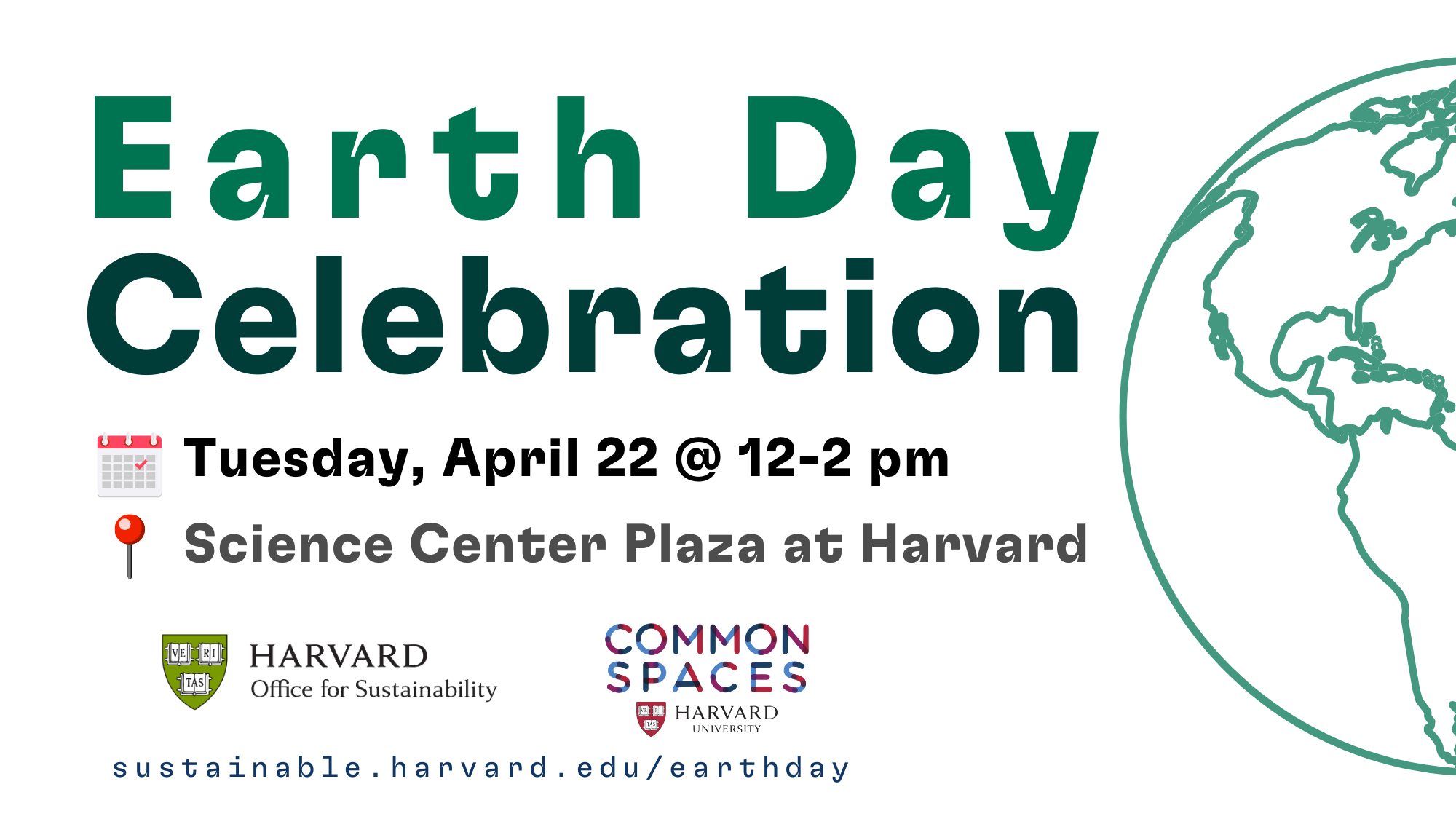
Join the Harvard Office for Sustainability and Harvard Common Spaces for an Earth Day Festival on Tuesday, April 22, 2025 from 12 to 2 pm at the Science Center Plaza!

What if future homes responded to nature and the material intelligence of living systems? This exhibition explores emerging approaches to domestic space that prioritize sustainability, adaptability, and sensory engagement. Featuring inflatable algae-based modules, the installation explores responsive interiors. Sensor devices suggest how future homes might intuitively engage with their environment.
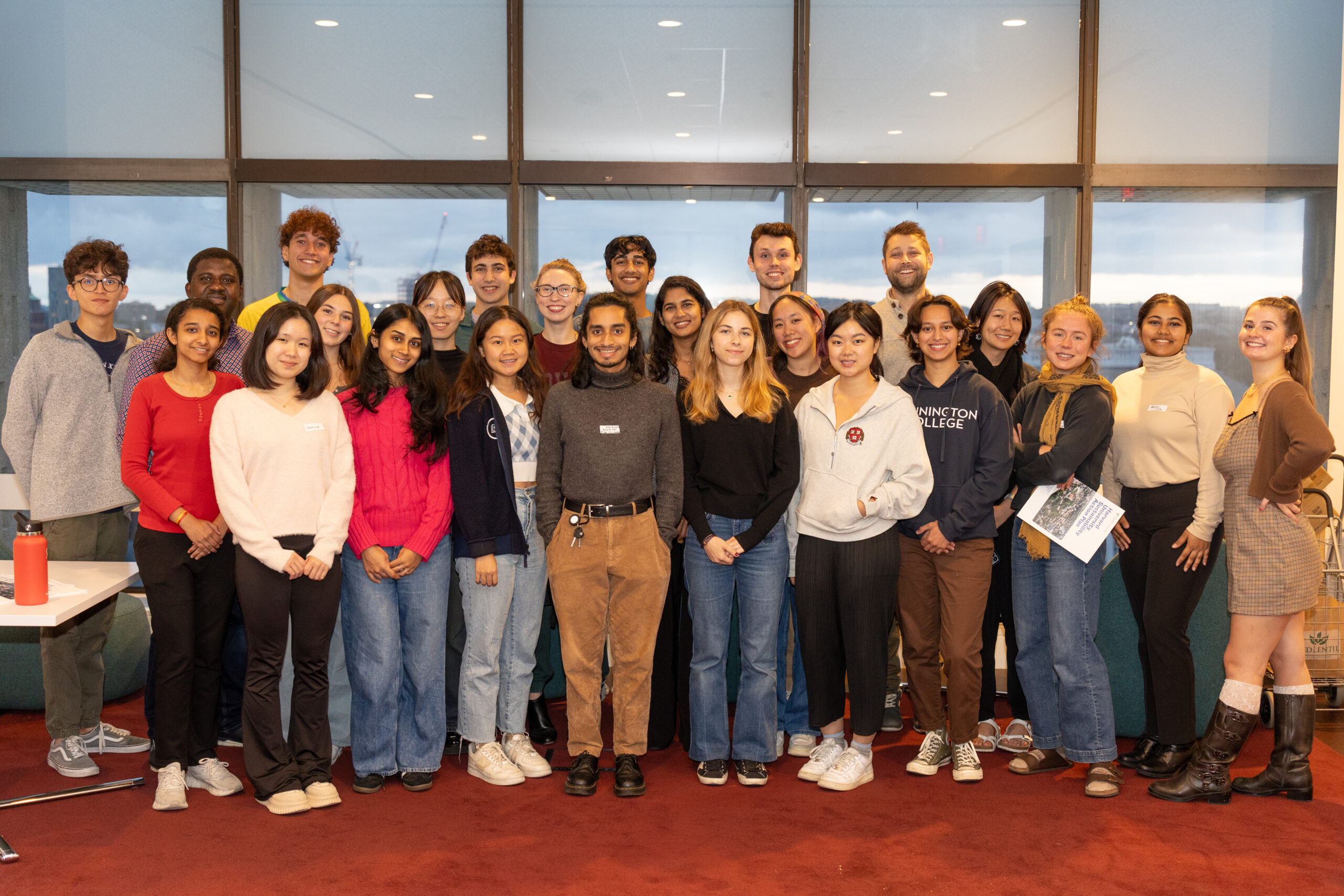
CSSL provides an opportunity for Harvard students to work together with other students from across the University’s Schools on sustainability projects, to connect and network with sustainability leaders (including faculty, and administration), and to provide feedback and recommendations on Harvard’s sustainability initiatives.
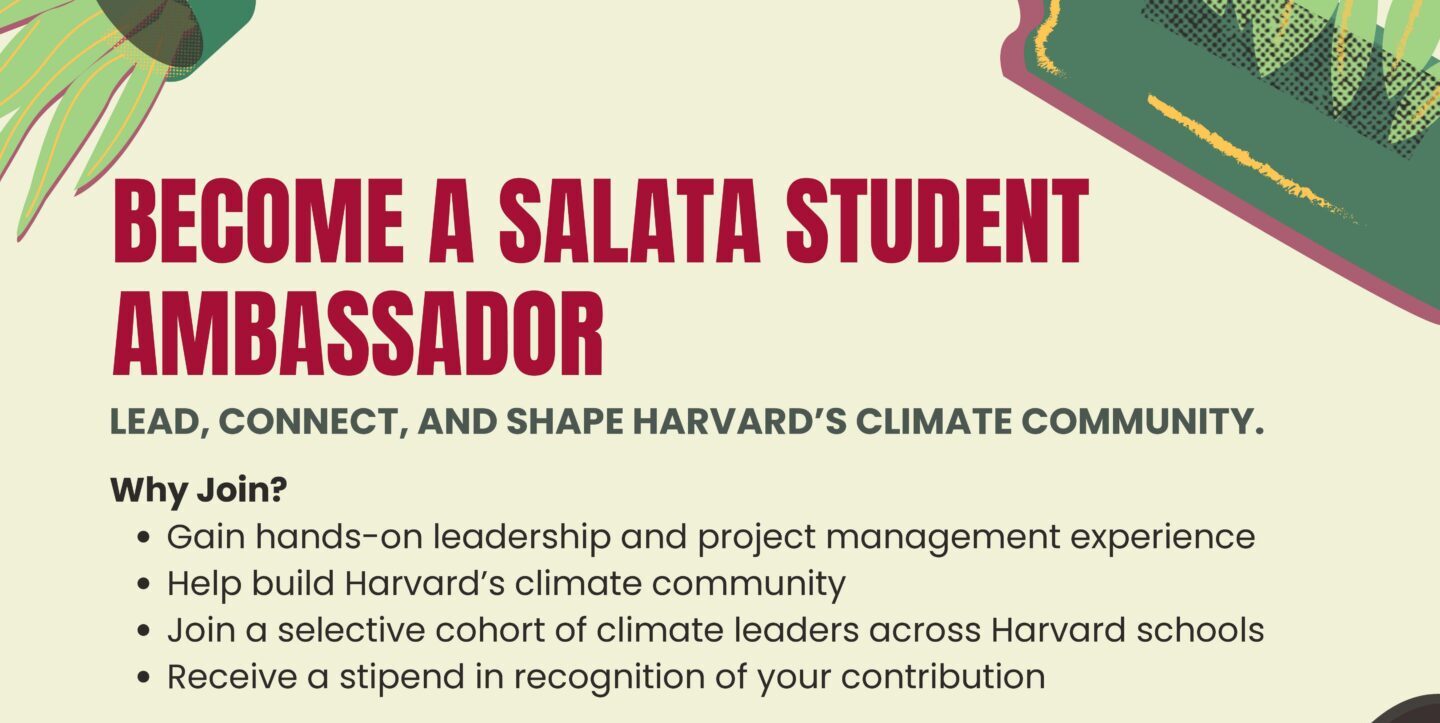
The purpose of the Salata Student Ambassador Program is to build a vibrant, student-led, interdisciplinary climate community across Harvard’s many schools. Ambassadors serve as connectors—engaging in peer-to-peer outreach, engaging with students, faculty, and staff involved in climate and sustainability work on campus, and contributing to the advancement of the Salata Institute’s mission. Tune into the info session to learn more.
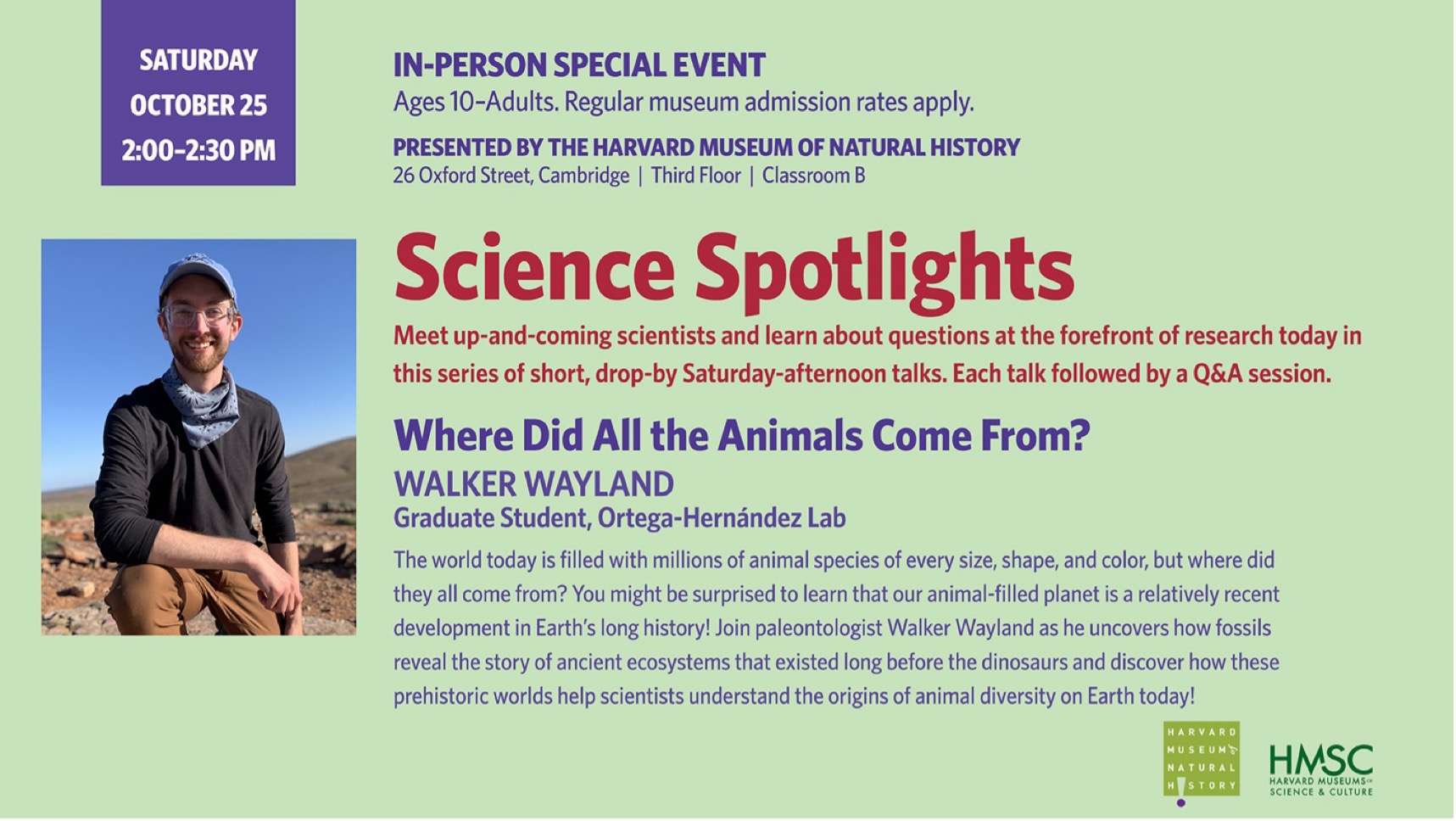
The world today is filled with millions of animal species of every size, shape, and color, but where did they all come from? You might be surprised to learn that our animal-filled planet is a relatively recent development in Earth’s long history! Join paleontologist Walker Wayland as he uncovers how fossils reveal the story of ancient ecosystems that existed long before the dinosaurs and discover how these prehistoric worlds help scientists understand the origins of animal diversity on Earth today!
Presented by the Harvard Museum of Natural History and Harvard Museums of Science & Culture.
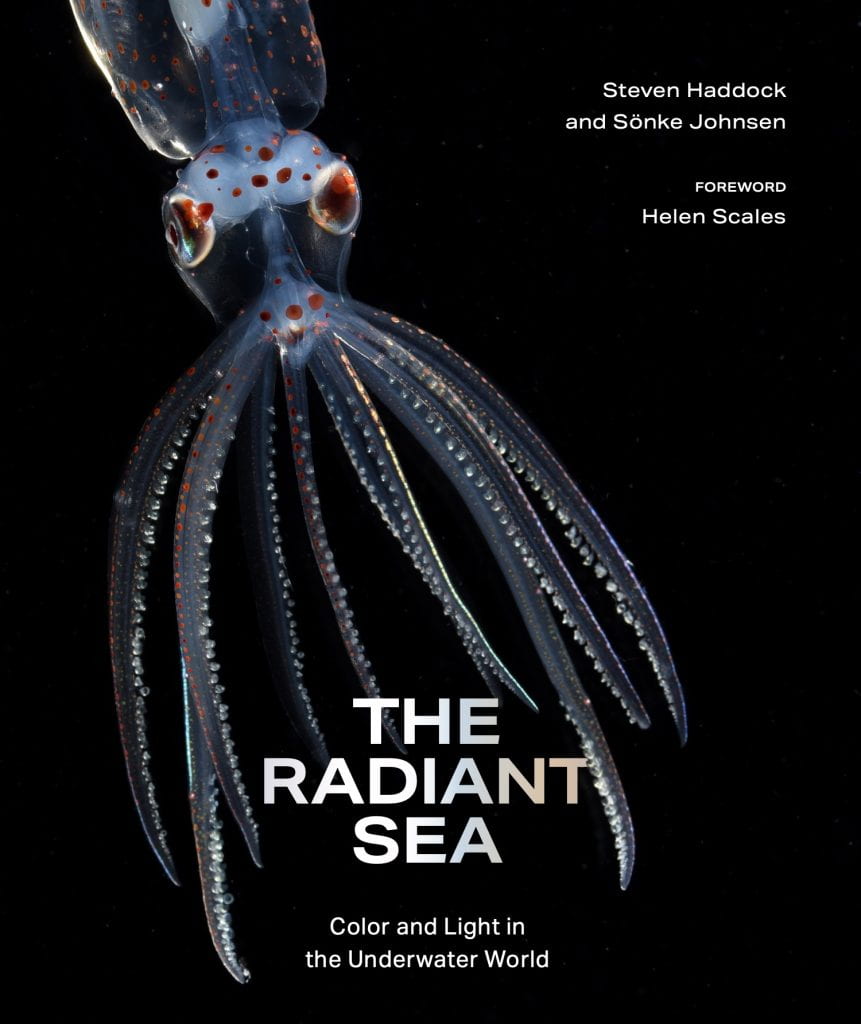
Dive into the wonders of the ocean with marine biologist and photographer Steven Haddock, Senior Scientist, Monterey Bay Aquarium Research Institute, and coauthor with Sönke Johnsen of The Radiant Sea (Abrams Books, 2025). Through stunning photography, insightful captions, and engaging essays, the book explores how sea creatures display transparency, vivid pigmentation, iridescence, bioluminescence, and fluorescence—from the shallow tropics to the deep sea. In this presentation, Steven Haddock will share the science behind these luminous marine phenomena, along with stories from the scientific expeditions that enabled him to capture them. Videos, animations, and hands-on demonstrations will bring the book’s remarkable images to life. This event offers a unique glimpse into the vibrant world hidden beneath the waves.
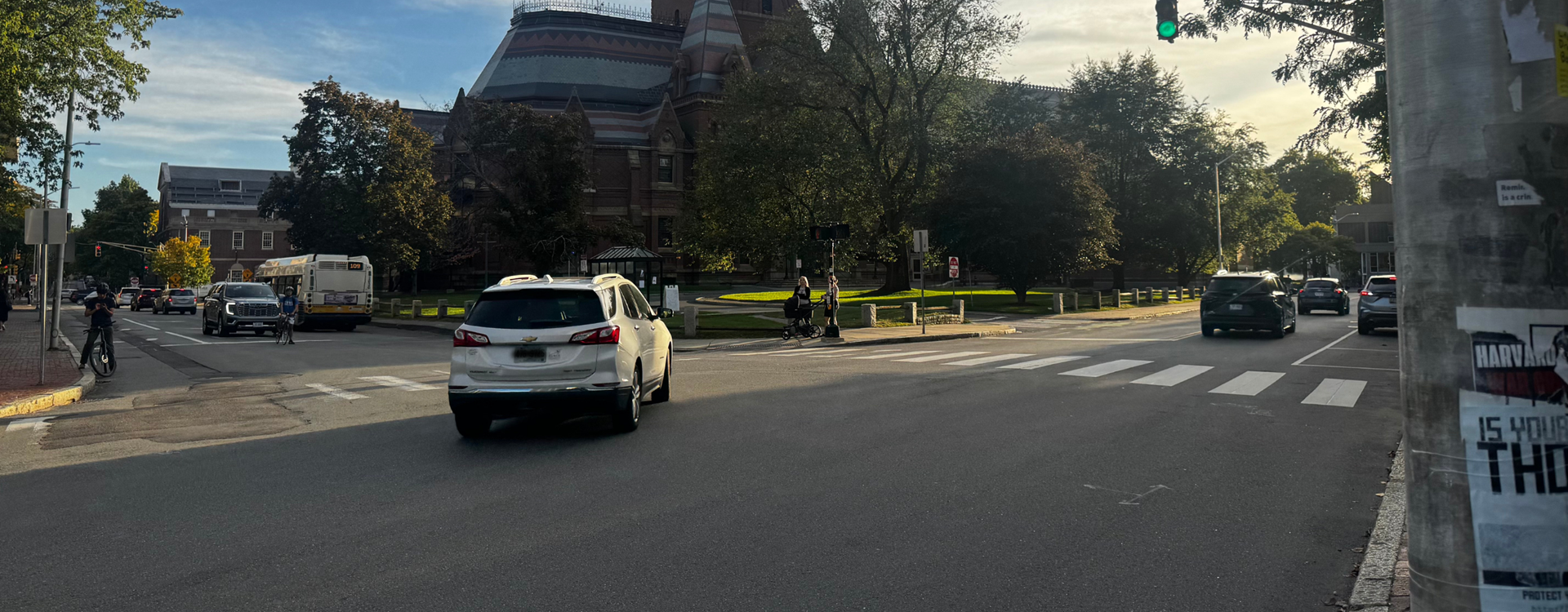
The City is hosting a drop-in Open House to review plans for the Quincy St - Western Kirkland St Safety Improvement Project, covering Quincy St between Cambridge St and Kirkland St and Kirkland St between Quincy St and Oxford St. Stop by at any time to learn about the proposed design, learn about the schedule and expected impacts, and share your feedback.
Sign up for the mailing list for updates. More information, including a map of the project sections, can be found on the project website.
Thursday, January 22, 2026 • 5:30 PM – 7:30 PM
Harvard Graduate School of Design, Gund Hall, 48 Quincy St